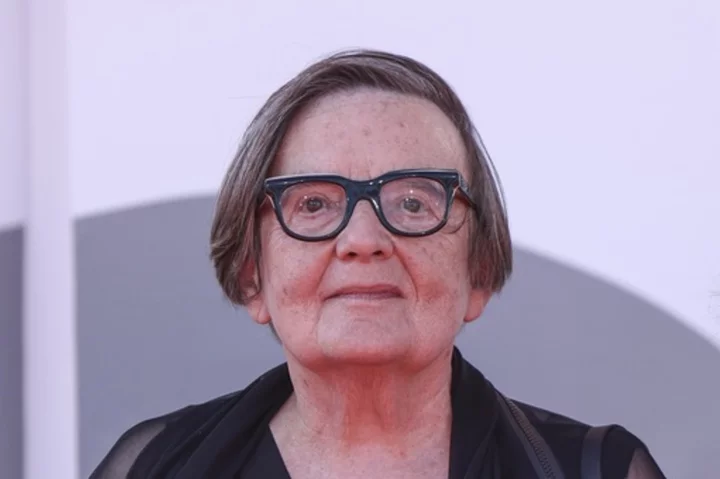WARSAW, Poland (AP) — Film director Agnieszka Holland demanded an apology from Poland's justice minister after he compared her latest film, which explores the migration crisis at the Poland-Belarus border, to Nazi propaganda.
Holland said Wednesday that she planned to bring defamation charges against Justice Minister Zbigniew Ziobro unless she receives an apology within seven days. She also demanded that he make a charitable donation of 50,000 Polish zlotys ($11,600) to an association that helps Holocaust survivors.
Holland’s feature film, “Green Border,” explores a migration crisis that has played out along Poland’s border with Belarus over the past two years. It takes a sympathetic approach toward the migrants from the Middle East and Africa who got caught up as pawns in a geopolitical standoff.
It also looks critically at the way Poland's security services pushed back migrants who were lured to the border by Belarus, an ally of Russia.
Ziobro slammed the film earlier this week, saying: “In the Third Reich, the Germans produced propaganda films showing Poles as bandits and murderers. Today, they have Agnieszka Holland for that."
He made his comment on the social platform X, formerly Twitter, on Monday, a day before the film had its world premiere at the Venice Film Festival.
Holland noted in a statement that Ziobro, who serves as prosecutor general as well as justice minster, commented on her film without having seen it and that she believed his words amounted to defamation, calling them “despicable.”
“I cannot remain indifferent to such an open and brutal attack by a person who holds the very important constitutional position of minister of justice and prosecutor general in Poland,” she wrote in a statement from Venice dated Wednesday but published in Poland on Thursday.
Holland said the comparison to Nazi propaganda was offensive because of what Poland suffered under Nazi occupation during World War II and given her own background. She noted that she was both the daughter of a liaison in the Warsaw Uprising, the city's 1944 revolt against the occupying Nazi German forces, and the granddaughter of Holocaust victims.
“In our country, which experienced death, cruelty and the suffering of millions during World War II, a comparison to the perpetrators of these events is extremely painful and requires an appropriate response,” Holland said.
Holland's film dramatizes the migration tragedy that unfolded in the “green border” of swamps and forests between Belarus and Poland. The story shows the intertwining lives of a Polish activist, a young Polish border guard and a Syrian family.
The director said her film aimed to show the problem of migration from different angles, including “wonderful Poles helping others despite threats.”
“Our film is an attempt to give a voice to those who have no voice. The problem of migration will grow, and soon it will affect each of us. Meanwhile, in Poland it is presented one-sidedly, exclusively from the perspective of government propaganda, which is interested in only one thing -- to scare our society,” Holland said.
Poland is preparing for an Oct. 15 election in which the right-wing government is seeking an unprecedented third term. The ruling party, Law and Justice, has focused on migration and security, promising to keep the country safe amid Russia's aggression against Ukraine and the attempts by Belarus to encourage migrants to enter into Poland.
The ruling party also voted to hold a referendum alongside the election with four questions, one of which asks voters if they “support the admission of thousands of illegal immigrants from the Middle East and Africa.”
___
Follow AP's coverage of global migration at https://apnews.com/hub/migration

